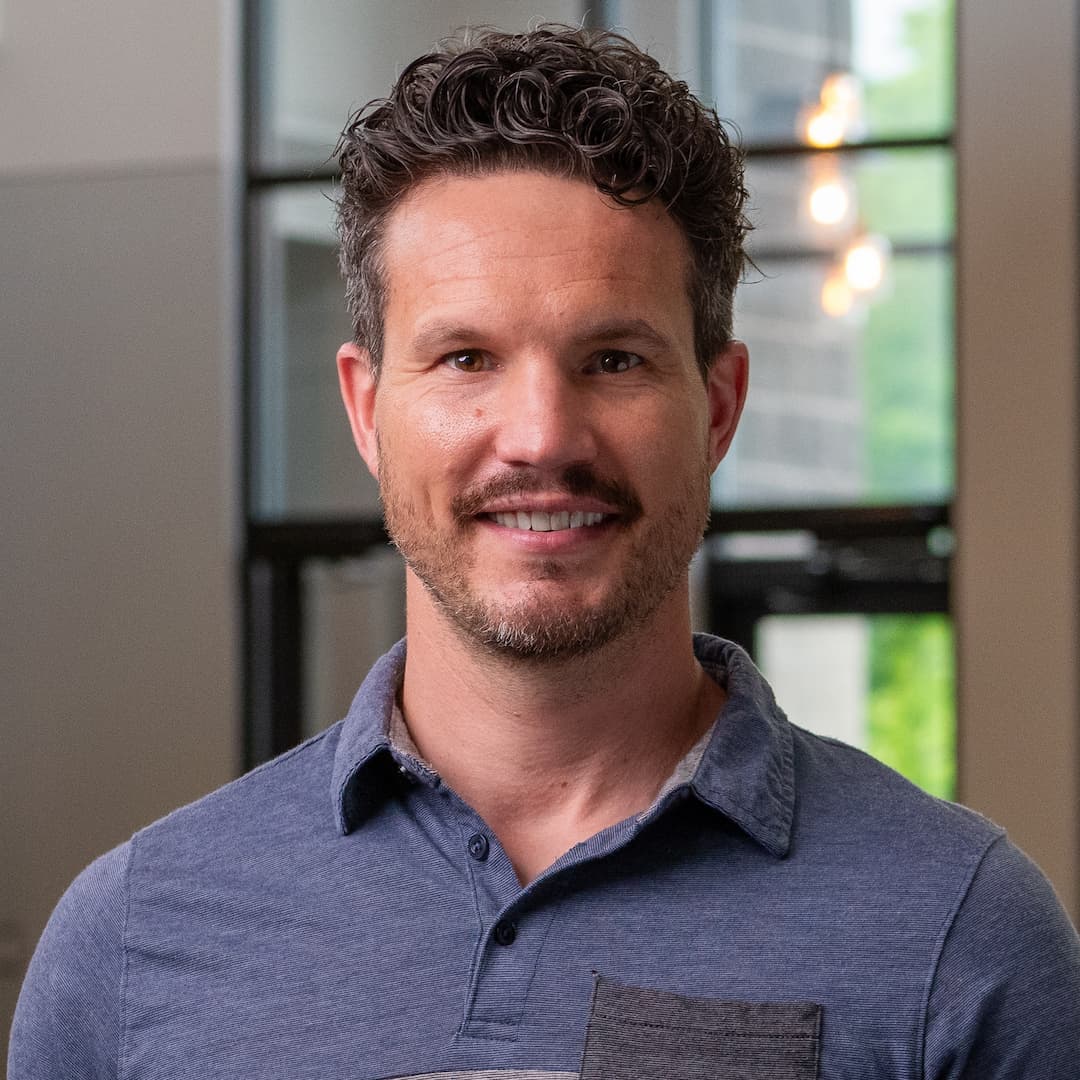In part one we discussed what deconstruction is and the reasons why people are engaging in it. The post closed with the observations that, irrespective of how one might feel about deconstruction, it is a historic and present reality that is neither new nor going away. Therefore, I suggested that our energies would be best spent learning how to accompany people through deconstruction towards Jesus rather than resisting or dismissing people who are engaging in it.
But what does this look like?
Cleaning out your closet
Deconstruction is sort of like cleaning out your closet. There’s this moment when you realize that the current state of your closet isn’t working. It’s a total mess. There are clothes everywhere; some of which you haven’t worn in years. So you take everything out of your closet, which, of course, creates an even bigger mess. Then you have to sort through the mess, weighing what you will give away and what you will keep. The final step is to put the most essential items back in your closet with new organization and clarity. You might even buy some new clothes to fill in the gaps.
Deconstruction is sort of like cleaning out your convictions closet. There’s this moment when, for whatever the reason(s), you realize that your current set of beliefs is no longer working. There are questions and doubts that have surfaced, but you’ve pushed them back down. The explanations and answers that used to be sufficient no longer feel satisfactory. It’s a total mess. And you know you can’t stay here.
So you decide to take your convictions, some of which you haven’t looked at for years, out of the closet for a more honest examination. And, of course, this act of questioning and examining, exploring and digging, dissecting and excavating, creates an even bigger mess. For a while nothing feels certain or known. But, if you can hang in there, continuing to dig and learn, oftentimes a new clarity and conviction will begin to emerge. You may end up leaving some beliefs behind entirely. But over time, you will begin to discern what essential convictions belong in your closet, albeit with a lot more nuance.
The importance of accompaniment
As I mentioned in the previous post, deconstruction is here to stay. The question is: Where will people go when deconstructing? Who will accompany people through this process? Will they find a safe space within the church to deconstruct their convictions? Or will they sense resistance from those within the church and, therefore, go outside the church?
These are big questions. Those whom a person surrounds themself with while deconstructing will often have a significant bearing on whether or not reconstruction is even a possibility.
One concerning trend I’m noticing is that people in the throes of deconstruction often don’t feel at home within the church. They are met with defensiveness and resistance. So they leave the church and find a welcoming community of people who have also left the church and are asking similar questions. In this space, any reconstruction of faith becomes significantly less likely.
It’s one thing to clean out your closet with someone who knows how to organize and put things back together. It’s another thing to clean out your closet with someone who lacks organizational skills or doesn’t even believe in closets.
In short, it’s vitally important for the church to figure out how to accompany people through deconstruction. If we don’t, we will leave the task to someone else.
How do you accompany someone through deconstruction?
I’m not an expert, as I recognize I still have a lot to learn, but here are some things I’ve found to be helpful.
1. Normalize the need for wrestling as a person of faith
In Genesis 32 we find the story of Jacob wrestling with God through the night. Jacob ends up acquiring a hip injury, God’s blessing, and a new name. The name Jacob is given, Israel, literally means the one who struggles with God. The people of God in the Hebrew scriptures inherit this name. They are the people of Israel, the people who wrestle it out with God.
Part of walking alongside someone through deconstruction is normalizing the wrestling they are experiencing. Wrestling is what the people of God have done throughout history. The people of God have always been willing to ask questions, name their fears, confess their doubts, and own their unbelief.
The people of God have always been willing to ask questions, name their fears, confess their doubts, and own their unbelief.
In fact, these things are not signs that a person lacks faith, but rather signs that they have faith. The refusal to entertain questions and doubts, the reliance on simplistic answers and solutions, more often reveals the insecurity of a person’s faith than the strength of it.
Many who are in the throes of deconstruction feel like something is wrong with them. Why can’t I turn these questions off or lower the volume on these doubts? Despite substantial pressure to do so, they know they can’t stay where they are, but they don’t know where they are going. Entering this liminal space, the space between what is known and moving toward the unknown, requires great courage.
I’ve found that normalizing the act of wrestling, validating the individual’s courage, and letting them know that I will go with them as they journey into the unknown goes a long way.
2. Resist getting defensive
I’ve walked with a number of people at various stages of deconstruction. And I’ll confess, it is almost always uncomfortable for me. My discomfort is often triggered when a person begins poking at an area where I hold strong convictions. I feel it as a threat. In those moments, I often want to respond by defending my position or convictions.
You can’t throw out that sweater. That’s my favorite one!!!
This type of response is rarely helpful. I know this firsthand.
As someone who has been in ministry for over a decade, I have spent a significant amount of time interrogating various beliefs, practices, values, traditions, and systems. On dozens of occasions I’ve attempted to share a different perspective with someone in conversation, only to be met with resistance and opposition. In the majority of these cases, the content of the other person’s response is rooted in a refusal to engage the complexity of the topic at hand. The person would rather cling to a familiar perspective than consider something different or new.
Because the first step toward deconstruction involves a movement toward complexity and away from certainty, responding with resistance or certitude may indicate that you are not ready to go where the other person is going.
Instead of becoming defensive or insisting upon simplistic certainty, I’m learning how to practice self-differentiation. This refers to the ability to stay defined and connected at the same time. I can have my views while someone is exploring theirs and stay relationally connected to the person at the same time. My connection with someone else doesn’t hang on having all the same viewpoints. Togetherness doesn’t mean sameness.
If you can remain self-differentiated, a posture of curiosity can go an incredibly long way. When I’m self-differentiated, I find I’m better able to be present to the other person with genuine curiosity.
Questions will serve to either strengthen and nuance our convictions, or expose them as lacking.
Practice asking sincere and insightful questions; the kind that take a person’s exploration deeper. Try on their perspective rather than just inviting them to the truthfulness of your own. What’s the worst thing that could happen? You start exploring and asking questions and doubting too? Look, if something is true, we shouldn’t be afraid of asking questions. Questions will serve to either strengthen and nuance our convictions, or expose them as lacking.
3. Remember that God is always present and at work
The first time I experienced deconstruction involved a crisis of faith around Jesus’ resurrection. I got to a point where I could no longer believe it just because I had been taught it. I had to take that belief off the shelf, examine it, study it, and decide if it was really worth keeping. This was scary for me. If I looked at the resurrection critically, would I still believe it actually happened?
I honestly didn’t know where things would end up, but I did have a couple things going for me. I had a few people in my life who weren’t afraid of my questions. In fact, they had wrestled with the same questions themselves. They put some resources in my hands and began meeting with me regularly as I explored things.
Questioning my belief in the resurrection and listening to the best arguments against its historicity, even in the company of some trusted guides, was super uncomfortable for me. But in the end, it actually strengthened my belief in the resurrection and deepened my faith. What I came to discover is that God wasn’t afraid of my questions. God was actually waiting for me in my questions.
And this is perhaps the most important thing to keep in mind when you or someone you know is deconstructing: God is always present and at work.
You may not feel God’s presence in deconstruction. You may just sense confusion and disorientation. Sometimes it’s only after a season of deconstruction that you realize how God was present and at work the entire time—prompting you to take everything out or your closet, helping you sort through the mess, putting back what matters most—fostering new growth along the way.
So herein is the key to accompanying people through deconstruction: You walk alongside them. You help them recognize how God is present and at work in their lives. You encourage them to identify and trust God’s activity and say yes to it, wherever it might lead.
The greatest risk of deconstruction is that the journey ends with deconstruction.
The greatest risk of deconstruction is that the journey ends with deconstruction. If we want to see people reconstruct a faith that is centered on the person of Jesus, we will need to learn how to accompany people through it. The key is not to resist deconstruction from happening. It’s to enter into it with them, reminding them that God is present and at work, asking questions that point to Jesus, and encouraging people to follow God’s leading.
Questions for reflection:
- How have you wrestled with God in your life?
- How has this wrestling caused you to grow and mature?
- Who in your life could you walk with through deconstruction?
- How would focusing on God’s activity serve as a guide?






